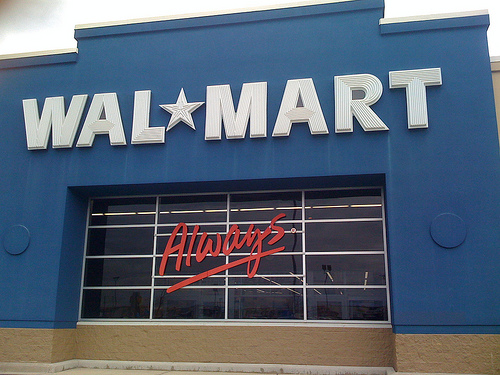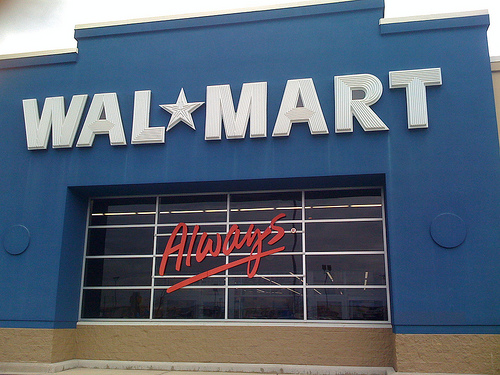 Photo: Mark Chang
Photo: Mark Chang
The days when Manhattan’s major streets were filled with quirky, small, family-owned businesses are long gone. Broadway or Sixth Avenue or 34th Street offer much the same retail options as a suburban mall. And the outer boroughs of New York City are going the same way. It’s a process that has made many a longtime New Yorker despair.
But resistance to a Walmart in New York City has remained strong, even as Target, Lowe’s, Costco, and other big-box stores have stomped their way into the marketplace.
Now the biggest bigfoot of them all is throwing its weight at the New York market again, hoping to open an outlet in East New York, Brooklyn. And this time, Walmart’s got a fancy new PR campaign with all the social-media bells and whistles. It isn’t even going to show up at the Feb. 3 hearings the City Council is holding on the matter, preferring to fight it out on YouTube and Twitter, and in the press — casting itself as an ally of the little guy who just wants a decent place to shop and maybe a job.
Walmart opponents usually cite two main objections to the chain, which has also been frustrated in Washington, D.C., and San Francisco: its notorious labor practices and its devastating effect on small, local retailers. New York unions have been among the leaders of the anti-Walmart movement.
The city’s public advocate, Bill DeBlasio, is opposed to the notion of the big smiley-face showing up inside the city’s borders (Mayor Mike Bloomberg has no such objections). From an article in International Business Times:
DeBlasio cited a study which claims that for every two jobs Wal-Mart creates; it kills three other jobs, while overall retail sales in a region stays largely unchanged. The study indicates that after Wal-Mart enters a neighborhood, the existing supermarkets and discount stores lose between 10 to 40 percent of their business.
The report further claims that Wal-Mart is a tax cheat and would burden city taxpayers due to the company’s increased subsidized healthcare needs.
“Studies from all across the country show that Wal-Mart’s arrival does not bring the increase in jobs and retail spending that the company promises,” said Brian Paul, Center Fellow and Masters of Urban Planning Candidate at Hunter College, which conducted the study. “Instead, Wal-Mart captures spending from existing stores, driving them out of business and replacing existing retail jobs with lower-paying Wal-Mart jobs.”
But the company’s slick new website, launched this past Monday, emphasizes the positive side for inner-city residents in need of cheap goods, some of whom are already traveling to New Jersey Walmarts.
That is a trip that can only be made by car, and the Walmart campaign makes note of the fact that fewer than half of New Yorkers own one of those.
The site features a video showing a 22-year-old electrician who drives from East New York — one of the city’s toughest neighborhoods, a food desert where it can be hard to find fresh produce or a decent selection of products — talking about how he is willing to make a three-hour round trip through New York traffic to reach the promised land of a New Jersey Walmart where he can save money on toilet paper and other stuff (apparently he doesn’t put a very high value on his own time).
It’s a pretty smart approach. Even if you hate Walmart, there’s no denying that the city needs jobs, and that the people of East New York have shitty shopping choices. Although it is somewhat ironic that a brand that is practically defined by its epic parking lots is now pitching itself as a solution for those who don’t drive.
Walmart has been making the push into urban areas a centerpiece of its strategy. Taking a bite out of the Big Apple would be a huge win for the company. The chain that epitomizes a certain type of suburban shopping experience sees cities like New York as the final frontier in a bad economy. Would it also be a definitive blow in the ongoing suburbanization of the city?
We’ll be watching.



